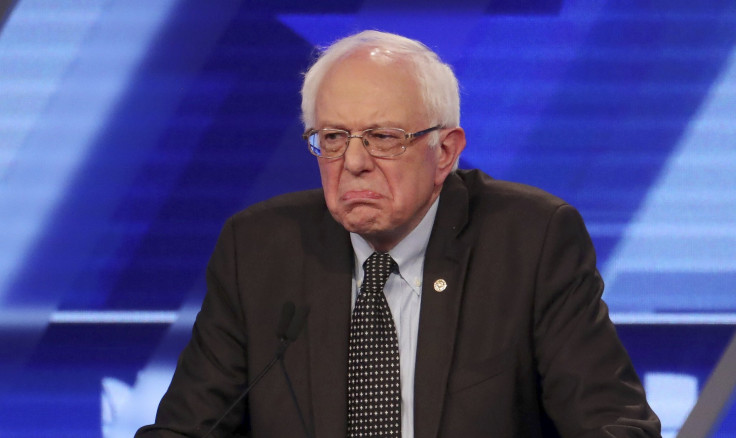Bernie Sanders' Socialism Different From Cuba, Nicaragua? Senator Once Praised Fidel Castro

Bernie Sanders found himself defending his identity as a “Democratic socialist” during Wednesday’s debate after the moderators showed a video of the Vermont senator praising Cuban dictator Fidel Castro in 1985. The moderators played the video, and then asked Sanders if his socialism differs from the governments of Nicaragua, Cuba and Venezuela, countries that many Florida residents left for the U.S.
The video showed Sanders praising the Castro regime and Nicaragua’s Sandanista government after he visited South America in 1985. It was published by BuzzFeed News in June 2015 after it originally aired on Channel 17/Town Meeting Television. In the video, Sanders praised the health care and education that the Castro regime put into place.
During the debate, Sanders responded indirectly to the moderator's’ question, emphasizing that his support for the Sandanista government was more about opposing United States foreign policy at the time.
“What that was about was saying that the United States was wrong to try to invade Cuba, that the United States was wrong trying to support people to overthrow the Nicaraguan government, that the United States was wrong trying to overthrow in 1954 the democratically elected government of Guatemala,” Sanders said.
The Vermont senator added that he was not saying Castro was his ideal leader. “Cuba is, of course, an authoritarian, undemocratic country, and I hope very much as soon as possible it becomes a democratic country,” Sanders said. “On the other hand, it would be wrong not to state that in Cuba they have made some good advances in healthcare. They are sending doctors all over the world. They have made some progress in education. I think by restoring full diplomatic relations with Cuba it will result in significant improvements to the lives of Cubans and it will help the United States and our business community.”
Hillary Clinton took the opportunity to hit Sanders on the issue, saying that Cuba’s government did not represent the values she wants to see for America in a succinct response.
“I think in that same interview he praised what he called the revolution of values in Cuba and talked about how people were working for the common good, not for themselves. I just couldn't disagree more,” Clinton said. “You know, if the values are that you oppress people, you disappear people, imprison people or even kill people for expressing their opinions, for expressing freedom of speech, that is not the kind of revolution of values that I ever want to see anywhere.”
Wednesday’s debate marked the eighth showdown for Democratic presidential candidates and the second time Clinton and Sanders took the stage together in four days. The event came just one night after Sanders’ surprise win in Michigan, where he narrowly beat the former secretary of state despite most polls showing him down by more than 20 percentage ahead of the primary there.
That upset victory proved that Sanders could do well in larger, diverse states, as he won the heavily Arab-American city of Dearborn, Michigan, and took home a much higher percentage of the black vote than he had in nominating contests across the South. His campaign has said it expects the Michigan win to help them do well in similar rust belt states like Ohio and Illinois, which vote next week.
But the biggest prize next week will be Florida, where Wednesday’s debate took place.
Clinton has been far ahead in Florida polls so far, with the latest poll from Quinnipiac University showing the former secretary of state leading Sanders 62-32 there.
© Copyright IBTimes 2024. All rights reserved.












